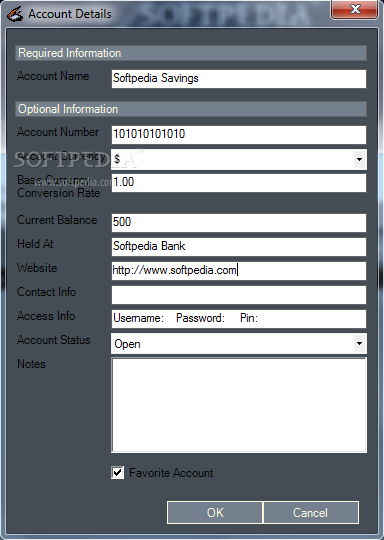

- #2. MONEY MANAGER EX FULL#
- #2. MONEY MANAGER EX SOFTWARE#
- #2. MONEY MANAGER EX TRIAL#
- #2. MONEY MANAGER EX FREE#
- #2. MONEY MANAGER EX WINDOWS#
Feel at Home with HomeBankĬompared to GnuCash, HomeBank is a much easier personal accounting system to use. Often, it is not the most current version. Most Linux distributions come bundled with a version of GnuCash. The latest stable release of GnuCash is version 3.3. Or postpone a scheduled payment without canceling or entering it before the due date. Set an automatic reminder when a transaction is due. Create recurring transactions with adjustable amounts and timelines. It handles Check Printing, Mortgage and Loan Repayment, Online Stock and Mutual Fund Quotes and Stock/Mutual Fund Portfolios. There is not much that GNUCash cannot do. From that perspective, GnuCash is a full-service package. If you run a small business, this app will track your customers, vendors, jobs, invoices and more. For instance, it handles reports and graphs as well as scheduled transactions and financial calculations. Its core functions, though, are based on formal accounting principles.įor business finances, GnuCash offers key features. It is designed to be simple and easy to use. Learning to use GnuCash is not overly difficult. If you do not have an appreciation for formal accounting principles, be sure you spend considerable time studying the ample documentation. The easiness ends there, however, if double-entry accounting is not your comfort zone. Its GUI (graphical user interface) is designed for easy entry and tracking of bank accounts, stocks, income and expenses. GnuCash has the look and feel of a checkbook register.
#2. MONEY MANAGER EX FULL#
It has a full suite of standard and customizable reports. GnuCash tracks budgets and maintains various accounts in numerous category types. It comes with a steep learning curve, though. It is a powerhouse personal and small business finance manager. GnuCash is an advanced financial program and one of the few money apps that an accountant using Linux would relish.
#2. MONEY MANAGER EX FREE#
Yes, you can get Microsoft Office apps for Linux now! They are cloud-based, and you need a Microsoft log-in such as a free mail account. For maintaining your bank account registers, you can find a variety of spreadsheet template files for LibreOffice Calc and Microsoft Excel on the Internet. If you are looking for an app only to track your checking and savings accounts, you will probably find the applications in this roundup a bit too advanced.
#2. MONEY MANAGER EX SOFTWARE#
This software roundup includes only free, open source products.
#2. MONEY MANAGER EX TRIAL#
The lines have been blurring between open source products and Linux packages with free trial periods or reduced features unless you pay to upgrade. Just because an application runs on Linux does not mean it is free to use. One development with the growing catalog of money management software for Linux users is the cost factor. At a bare minimum, they will help you become more aware of where your money goes. These Linux apps are tools to handle your budget, track your investments, and better organize your record-keeping. In a change of pace from the usual Linux distro reviews, Linux Picks and Pans presents a roundup of the best financial apps that make the Linux OS a treasure trove for your financial needs. However, Linux users now have a few more very noteworthy choices to chart their personal and small business financial activities. Those Linux staples are still top of the class today.
#2. MONEY MANAGER EX WINDOWS#
In terms of features and performance, they were as good as or better than the well-known Microsoft Windows equivalents - MSMoney and Quicken. In fact, depending on the Linux distro you fancied, those four packages often comprised the entire financial software lot. The best of the Linux lot were GnuCash, HomeBank, KMyMoney and Skrooge. Often, the only recourse was to use Microsoft Windows-based applications that ran under WINE.

Back then, the pickings were mighty slim.

Not quite 10 years ago, I scoured Linux repositories in a quest for replacement applications for popular Microsoft Windows tools. Today’s Linux platform accommodates a number of really good financial applications that are more than capable of handling both personal and small-business accounting operations.


 0 kommentar(er)
0 kommentar(er)
